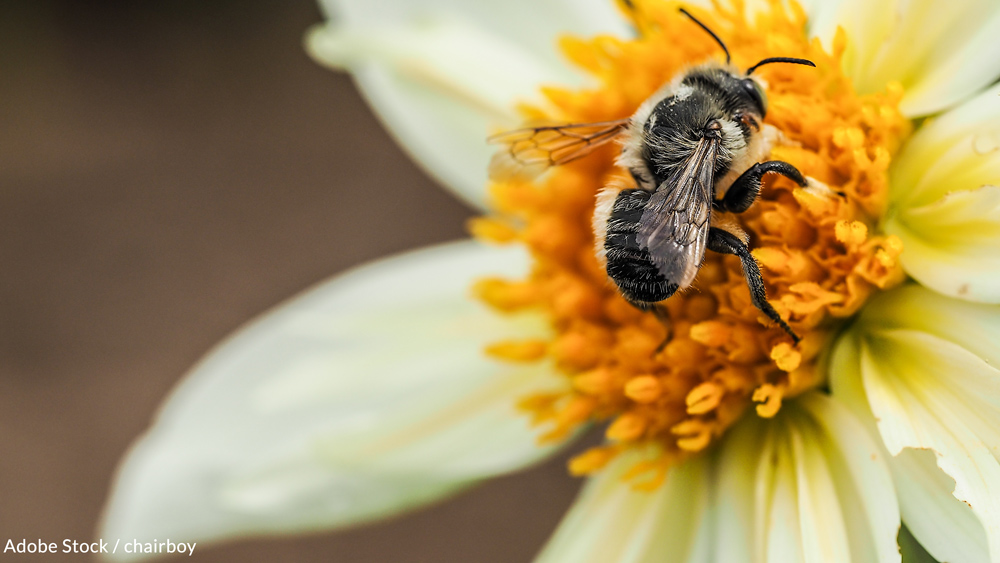
This Dangerous Pesticide Was Banned In The EU, But It Is Still Killing Honeybees In The US
Honeybees are vital to our life on Earth. They are critical to ecosystem success, providing food for amphibians, fish, birds, reptiles, and mammals. Insects play a role in decomposing animal wastes and dead vegetation, recycling the nutrients in these materials and returning them to the soil.
Without bees, plants would not be able to reproduce and the core of our agricultural system would crumble. You might never see an apple, an avocado, or a cup of coffee again.
Truly, a world without bees would be a nightmare, yet chemical pesticides that kill these critical pollinators off in droves are still being applied to food crops in the U.S.

According to a study published in Nature, insecticides targeting crop-damaging pests reduce both the number and diversity of insects in an ecosystem. The chemical insecticides applied in conventional agricultural practices lands are highly toxic to the insects they directly target, and affect other species like honeybees indirectly. Although the bees may not be exposed to sufficient doses of insecticides to suffer acutely lethal poisonings in one dose, a study in Environmental Science and Pollution Research shows that sublethal and indirect adverse effects have been demonstrated to occur, and build up over time.
Bee populations have begun to see sharp declines in recent years. There are several theories as to why this may be occurring, but the most widely-accepted is that neonicotinoid-based pesticides meant to protect us from other harmful bugs are having the unintended effect of killing off the bees.

Neonicotinoids are deadly to a wide range of insects, but they are safer for people and other mammals than an older family of insecticides called organophosphates, NPR reports.
“This is the problem with water-soluble pesticides like neonics,” says Christian Krupke, an entomologist at Purdue University. “It’s very hard to predict where they’ll go and what will happen when they’re out in the environment.”

In recent years, farmers have rapidly increased their use of neonics. A study in PLOS ONE shows that neonics are generally applied at lower application rates per acre but considerably more toxic to insects and generally persist longer in the environment.
Once absorbed by crops and wildflowers, neonicotinoids can later show up in the plants’ nectar and pollen, affecting bees and other pollinators, NPR reports. A number of slugs living in the soil where neonics were applied were also found to be poisoning slug-eating beetles.
In this category of neonics, clothianidin, is very toxic to honeybees and has not been tested for its potential to leave trace chemicals on food.

According to PBS News Hour, clothianidin impairs a bee colony’s immune response and ability to reproduce, and especially threatens the lives of queen bees. A study published in the journal Nature Communications found that bee colonies in clothianidin-treated fields saw up to 66% fewer males than colonies that weren’t exposed to the chemical, and up to 74% fewer queen bees6.
As Science Magazine reports, clothianidin can also lead to colony collapse disorder, or even make colonies less likely to clear out dead or sick bees from their hives, which means more bees can become infected over time.

Neonicotinoid pesticides like clothianidin are now the most widely used class of insecticides in the world, with the majority of applications coming from seed dressings, according to a study in Environmental Science and Pollution Research. Since the mid-2000s, several studies raised concerns that neonicotinoids may be having a negative effect on honeybees and bumblebees. In response to these studies, the European Food Safety Authority (EFSA) recommended that the European Union ban the substances in 2013.
Clothianidin is still being used in the U.S., however, causing untold damage to our pollinators, our environment, and our health.
Join others in demanding the EPA ban clothianidin from agricultural and household use. Click below to make a difference.
Help Rescue Animals
Provide food and vital supplies to shelter pets at The Animal Rescue Site for free! →